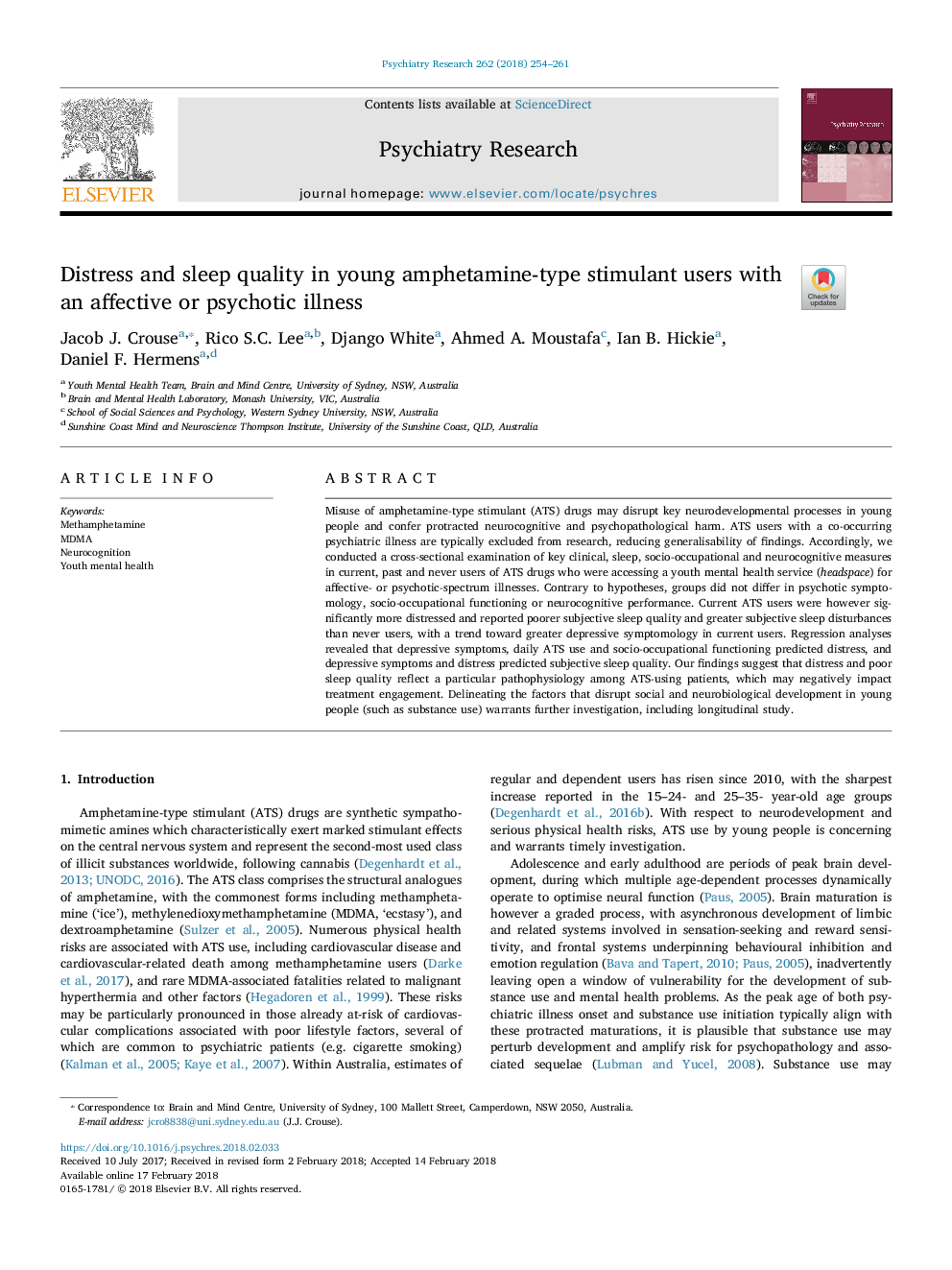ترجمه فارسی عنوان مقاله
کیفیت ناراحتی و خواب در افراد دارای تحریک نوعی آمفتامین جوان با بیماری عاطفی یا روان درمانی
عنوان انگلیسی
Distress and sleep quality in young amphetamine-type stimulant users with an affective or psychotic illness
| کد مقاله | سال انتشار | تعداد صفحات مقاله انگلیسی |
|---|---|---|
| 127561 | 2018 | 8 صفحه PDF |
منبع

Publisher : Elsevier - Science Direct (الزویر - ساینس دایرکت)
Journal : Psychiatry Research, Volume 262, April 2018, Pages 254-261

